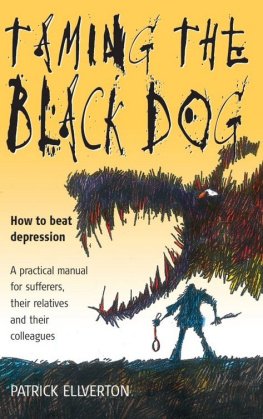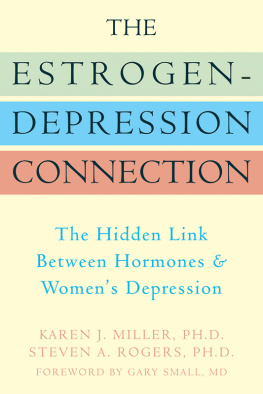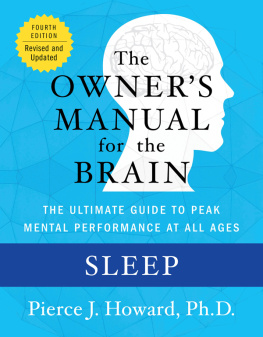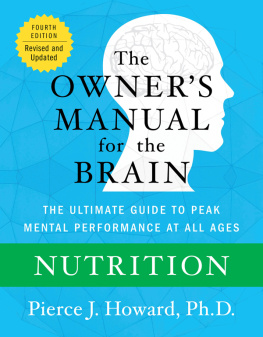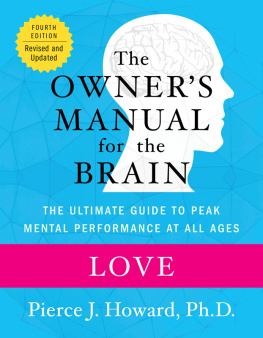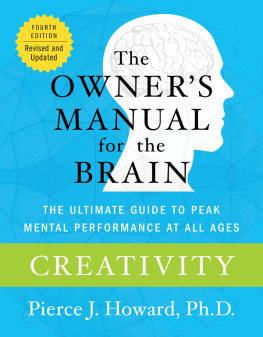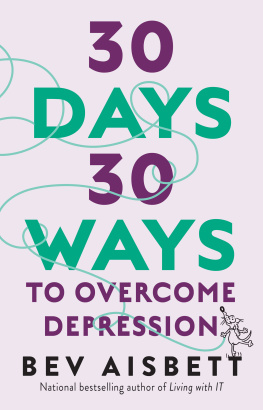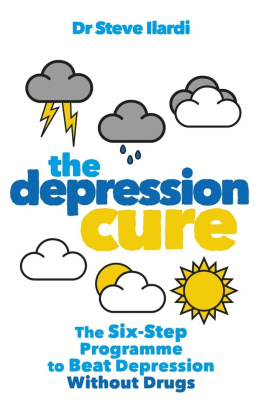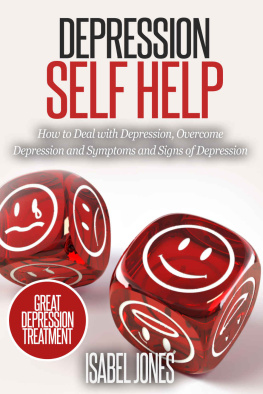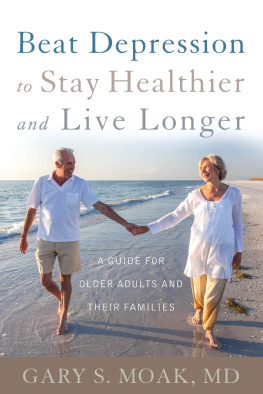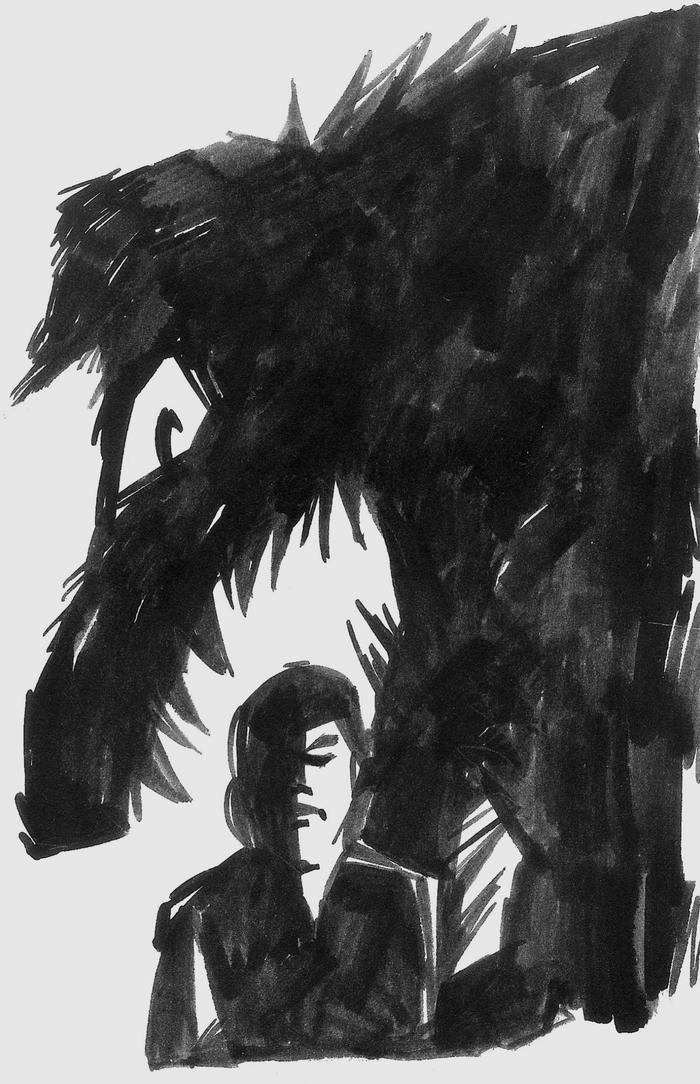Winston Churchill was no stranger to depression. It was he who called it the Black Dog and in so doing gave the affliction a recognisable identity.
Taming The Black Dog is the foundation of residential courses for service men and women embarking on civilian life including those suffering from Post Traumatic Stress Disorder.
www.remount.net
To Amelia Mustapha of Depression Alliance who gave me the encouragement to proceed in the early days and Suzi Rogol, the editor of Good Time magazine, who published the first chapter as an article.
To Giles Lewis my publisher and Nikki Read the commissioning editor who decided to give me a run, and to Francesca Mitchell my editor for her clarity of thought and suggestions. Also David Mostyn my illustrator for so successfully giving the Black Dog an image for everyone to visualise.
Specially to Susie Storey for her lively and constant interest, without whose practical help the book might never have found a publisher.
Who are you? I was asked. I replied, I am me the same me as ever was but I am also a little part of everyone against whom I have brushed throughout my life.
So this book is also dedicated to all of you too numerous to recall.
Patrick Ellverton
Then turn again to your task. Look forward, do not look backward. Gather afresh in heart and spirit all the energies of your being, bend anew together for a supreme effort. The times are harsh, the need is dire, the agony seems infinite but the power of commitment and perseverance hurled united into the conflict will be irresistible.
Adapted from a speech by Winston Churchill, 1915
Almost everyone experiences depression at some time in his or her life. Depression is more than just a debilitating feeling it is a profound psychological and physical experience, which affects the bodys whole physiology.
Depression can be actually painful and it is dangerous. If you are seriously considering suicide as a solution to your depression, please get help NOW. Call your doctor at once for immediate clinical help, or telephone one of the crisis lines listed in Appendix 2 of this book, provided by Samaritans, SANE, or Depression Alliance.
Depression is often defined as a condition in which a number of specific symptoms persist for at least one month. If you have four of the following symptoms you are probably depressed. If you have five or more you are definitely depressed.
- Feelings of worthlessness, self reproach.
- Inappropriate guilt.
- Recurrent thoughts of suicide.
- Weariness and loss of energy and feelings.
- Diminished ability to think and concentrate.
- Loss of interest or pleasure in usual activities.
- Decrease in sexual drive.
- Continuing state of worry and apprehension.
- Insomnia or hypersomnia.
- Poor appetite with weight loss or increased appetite with weight gain.
- Physical inactivity or hyper-activity.
Along with these symptoms, the bodys physical functions can become unbalanced as well. Constipation and changes in the menstrual cycle are common and you may feel cold, weak and sluggish.
Depression may occur as a brief, transient event or it may be a lifelong struggle, as with the author of this book.
When depression results from the death of a loved one, the end of a relationship or the loss of a job, the feelings may be appropriate and normal. Indeed a period of grief and sadness is essential. Treatment is generally not needed unless the depression is severe enough to make someone non-functional and entertain suicidal thoughts.
However, the general rule is that people with depression should seek a medical evaluation. Symptoms that look like depression might be caused instead by a specific medical condition, such as a thyroid complaint, hormonal imbalances or a side effect of medication. The involvement of a medical practitioner is not just sensible; it is very reassuring and will help to reduce the level of anxiety in both the sufferer and their loved ones.
The prime rule is to consult your doctor, particularly if you think that you might be suffering from manic depression. Your doctor will be able to advise you on the professional help that is available to you. Then this book will help you get back on your feet again permanently.
A GREY, OPPRESSIVE CLOUD HANGS OVER EVERYTHING it seems, from horizon to horizon. It diminishes light and neutralises the colours around us. It inhibits love, spoils enjoyment, denies humour, magnifies legitimate worries and results in a sense of purposelessness. It is a mental affliction, which we call depression. Fortunately for most sufferers it is not continuous and comes in bouts. Winston Churchill gave it an identity and called it the Black Dog.
The sooner depressives can give their affliction an identity, the easier it is for them to deal with it. The Black Dog is not just a mental affliction. It is a creature, which stalks our brains and undermines bodily functions. But it can be tamed practically and decisively. How can I be so sure? I have done it.
I had fought and wrestled with the beastly thing throughout my life, from being a schoolboy, then a tank officer, merchant banker and television director. It seemed that for most of my life I had suffered from an ever-present weariness.
I had no alternative but to share the family view that I was simply lazy and needed to pull my socks up, as my father would often say. The result was that despite my achievements, I had low self-esteem , which was camouflaged from my friends and colleagues by an outgoing, apparently cheerful and entertaining personality. Nobody, but nobody, at that time would have believed that I was suffering from depression, and the concept of low self-esteem was unknown to most people then. Certainly it was not a subject for healthy young people to bother contemplating.

